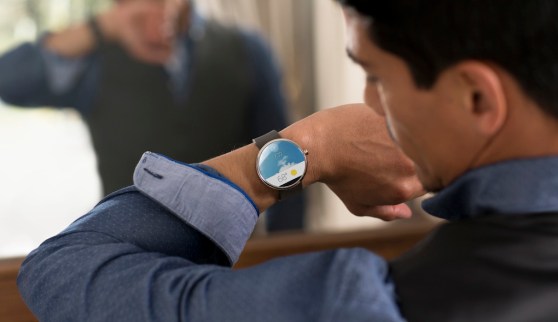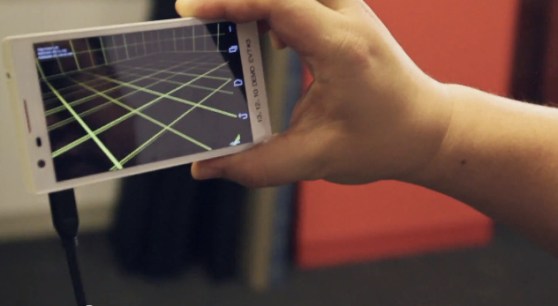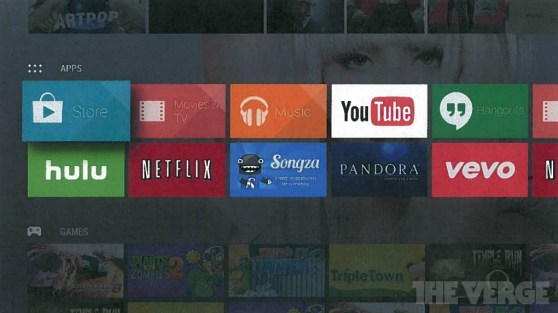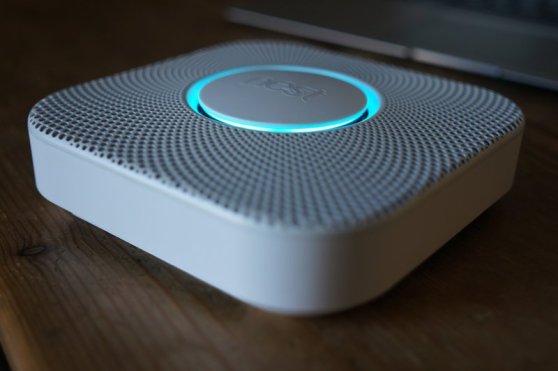This year’s Google I/O developer conference won’t be like any other.
Now that Google has its fingers in more pies than ever before, the big focus at I/O this year will be about building the broader Google ecosystem. Android on your wrist and in your car. Nest in your home. Google everywhere you look.
It’s not exactly a new focus for Google, but this year all of the pieces are in place to make it real. Expect to see more products and services that could actually live up to Google’s lofty ambitions, rather than half-baked attempts to enter new markets. (Whatever happened to Android@Home, which was announced way back in 2011?)
Don’t expect any flashy skydiving sequences this year (which, while cool, did nothing to prove why normal people would want to use Google Glass). But I wouldn’t rule out another wild rant from CEO Larry Page.
Below, check out the topics we expect will be a big focus at I/O this year:
Google Fit: Google tracking your health
At Google I/O there’s a chance we’ll hear a lot more about Google Fit, Google’s entry into the consumer health data space. Google Fit, reports say, will act as a health data repository that will receive biometrics data from all sorts of consumer wearables devices.
This data would include the fitness and sleep tracking functions we see in existing wearables but might also include more clinical measurement of things like blood pressure, blood sugar level, heart rate, and blood oxygen levels.
The new platform, if announced, would compete with Apple’s HealthKit platform and Samsung’s SAMI platform, both of which were announced this spring.
Google Fit’s official debut will set the stage for a Google health wearable device that many believe is coming. But our sources say that, like Apple and Samsung, Google will announce its health platform first, then release a compatible wearable device later.
Many believe that smartwatches will soon subsume the functions of the fitness wearables we see now and even begin to take away functions that we look to our smartphones for now.
With so much energy around smartwatches right now, Google may not want to wait too long before it releases its wearable health tracker. And we are expecting a few surprises from Google at the conference this year — a new, health-focused wearable could be one of them. — Mark Sullivan
Nest opens up its connected home platform
Google-owned Nest just announced this morning that it’s opening up its platform to third-party developers. In one year, Google went from having practically no standing in the connected home to owning one of the most promising home platforms.
Matt Rogers, Nest’s co-founder and VP of engineering, tells VentureBeat that the company has already seen more than 5,000 early signups for its developer API. “There are partners that have great hardware … now we’re able to leverage what we built and what they built,” Rogers says.
Google will also host a session on Nest’s new APIs at I/O, which we expect to be a bit of a madhouse. — Devindra Hardawar

Above: Motorola’s Moto 360 Android smartwatch
Android Wear: Android on your wrist
It’s a given that we’ll hear a lot more about Android Wear at I/O. Announced back in March, Wear is Google’s spin on Android for wearable devices. LG and Motorola have already shown off their Wear devices, the G Watch and Moto 360, and we can expect them to take center stage during I/O. Samsung, one of Google’s Android Wear launch partners, may also have a new smartwatch to show off at I/O.
Judging from what we’ve seen so far, Android Wear focuses heavily on Google Now notifications, as well as other alerts from your smartphone. Voice commands will also play a big role when it comes to interacting with Android Wear devices (which falls in line with the increasing importance of voice in Google Now). — Devindra Hardawar
Android Lollipop details
The next version of Android, which is rumored to be called “Lollipop,” could make its first appearance at the conference. It’s been around nine months since Google unveiled Android 4.4 “KitKat,” and given that that release was slightly delayed, Google could be ready to show off something completely new.
Just like Apple did with iOS 7, Google is hard at work on a complete visual revamp of Android, according to a report by Android Police. That new design will likely make its debut in Android Lollipop, along with further upgrades that open up the power of Google Now throughout Android. — Devindra Hardawar
Big cloud updates
While it’s not as well known as services like Gmail and Google Maps, the Google Cloud Platform should receive more than its share of attention at this Google I/O. Google could announce new services for the broader public cloud, and it’s likely to show more signs that the burgeoning Google Compute Engine (GCE) infrastructure as a service is ready to handle serious applications from companies big and small.
More cloud data centers: For one thing, Google could announce that developers can start renting out virtual slices of physical servers in more data centers with GCE. Geographical availability has been a weak point for Google, and if the tech giant aspires to compete closely with public cloud market leader Amazon Web Services, it will have to operate GCE from more facilities in more countries. Google has been expanding its data center footprint. Now it’s just a matter of allocating more space to GCE.
New big data service: Google could introduce a new product for processing large data sets in its public cloud. We don’t know much about this yet, but the general notion isn’t crazy. In March, Google slashed prices for its BigQuery service for running SQL-like queries on data. A next-generation system could now be ready for launch.
More cloud customers: Google could also name more GCE customers. To the untrained eye, such rhetoric might come across as marketing filler. But enterprises and even individual developers don’t experiment on a whim. Oftentimes they first want the reassurance that companies they know and respect already use technology. So Google could make inroads there at Google I/O, as it’s been quiet about GCE customers for the most part.
As companies move more applications onto public clouds, the people in charge of deployments could use better tools. It sounds like Google plans to announce features that could make a difference. A better debugging system for spotting problems in code could be on the way, for example. — Jordan Novet

Above: Google’s Project Tango 3d mapping handst
Project Tango: 3D-mapping the world
Google hasn’t been shy about its plans regarding Project Tango, its 3D mapping initiative that includes a new Google-branded smartphone and tablet with heavy-duty 3D imaging cameras. But the company has also been unable to fully illustrate the full potential of building apps for hardware like this, either.
At Google I/O, expect to see a handful of developers show off apps that use this tech in interesting ways. For example, being able to snap a photo and get the entire dimensions of a room (and all the furniture inside it), taking a 3D imaging photo of an object that can later be recreated in plastic via a 3D printer, much better facial recognition, and more. This will certainly be one of the more interesting portion’s of Google’s developer event. — Tom Cheredar
Android in your car
Apple has, arguably, been more engaged with automakers to make the iPhone integrate with car telemetry and entertainment systems. In March, Apple announced its CarPlay platform, which will allow car manufacturers to include iOS features like calling, music playback, Siri integration messaging, and navigation in their vehicle dashboards.
At CES in January, Google announced that it was taking part in the Open Automotive Alliance, which it formed together with Audi, GM, Honda, and Hyundai to build an in-car entertainment system with Android at its center. The companies said at the time that we’d start to see Android-integrated cars by the end of 2014.
Since that announcement in January there has been very little noise about Android in the auto. Google I/O might be a good time to provide an update on the results of the Open Automotive Alliance so far. — Mark Sullivan

Above: A screenshot of what could be Google’s next TV project, Android TV.
Android TV: Rising from the ashes of Google TV
With Google TV practically dead at this point, we might see a rebranding of the platform to Android TV. Rumors of a rebranded Android TV platform first popped up last year after photos of future set-top boxes sporting an “Android TV” branding leaked. And with Amazon’s recent launch of the Fire TV set-top box, which is powered by a custom Android build, it makes sense for Google to make another play for your living room.
Expect Android TV to feature much more powerful hardware than Google TV devices, and also expect less of a reliance on TV providers. — Tom Cheredar
Odds and ends
- Google Glass: Google announced some minor Glass hardware updates and new apps the night before I/O kicked off. Still, don’t expect to hear about consumer pricing for Glass this year.
- Project Ara: Google’s modular smartphone project already got a small developer conference of its own last month, so there’s likely not much more for Google to announce at I/O. Google expects to release its first Ara base module next year for $50.
- No new Nexus devices: While we’ve heard that a new Nexus 9 tablet is on the way, it’s not expected to debut until the end of this year. It’s also far too early for Google to show off a successor to the Nexus 5, which launched last fall.
- Stackdriver integration: Watch out for news about the way Google makes use of monitoring tools from Stackdriver, which Google acquired earlier this year.



